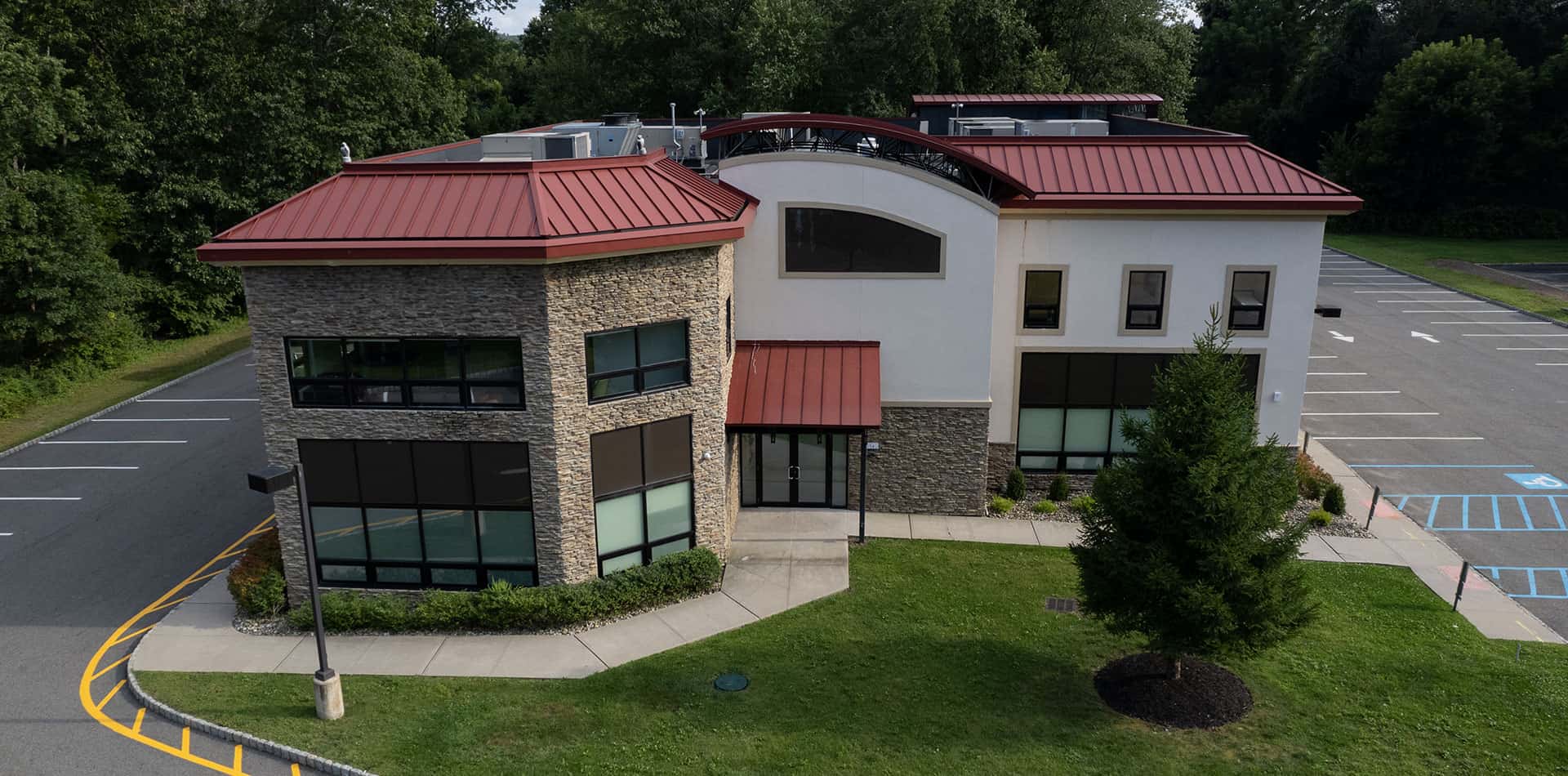Teen Dual Diagnosis Treatment
We will give you the support and guidance you need to get started on the road of long-term recovery.
Dual diagnosis refers to a complex disorder where an individual simultaneously faces both a mental health concern and a substance use disorder. This can create a unique set of challenges for diagnosis and treatment, impacting the young person’s well-being and the overall journey toward recovery. Understanding the intricacies of dual diagnosis is crucial for parents seeking the best possible care for their child.
If you’re a parent seeking guidance for your child’s journey toward healing, rest assured that Guardian Recovery is here to help. We offer the most comprehensive and tailored treatment programs available. Reach out to us today to explore our offerings and discover the range of mental health services we provide, ensuring a brighter future for your loved one.
What is Dual Diagnosis Treatment?
Adolescents who are struggling with dual diagnosis often find themselves caught in a cycle. They might turn to substances to cope with the challenges posed by their mental health symptoms, only to discover that the substances exacerbate them. For instance, a teen battling depression might resort to alcohol or drugs to numb their emotional pain, inadvertently intensifying their depressive state. The complex interplay necessitates a comprehensive, holistic treatment approach addressing mental health and substance use issues.
Effectively addressing dual diagnosis in adolescents requires a multifaceted strategy that draws from various disciplines, including psychiatry, addiction medicine, and therapeutic interventions. A successful treatment plan often incorporates a combination of medications, psychotherapy, peer support groups, and lifestyle adjustments. By tackling both mental health disorders and substance use disorder concurrently, teens with dual diagnoses can achieve lasting recovery and an improved overall quality of life.
Get Local Help
Helpful, Recovery
Resources
- Our Approach
- Recovery Tips
- Frequently Asked Questions
- Insurance Check
- Ask a Question
Teen & Adolescent Dual Diagnosis Treatment in Recovery
For parents seeking help for their teenagers with a dual diagnosis disorder, it is essential to understand how mental health and addiction are connected. This helps treatment providers see the bigger picture and create a plan for your child.
Try thinking of mental health and addiction as puzzle pieces; sometimes, they fit together. Ignoring either piece would make the puzzle incomplete and more difficult to solve. When we put mental health and addiction treatment together, it helps us understand what’s going on.
Teens with dual diagnosis face extra challenges like dealing with how others see them and their inner struggles. This is where dual diagnosis steps in, understanding how mental health and use mix creates a safe space where your teen can get better with support and kindness – a strong base for their recovery journey.
Start Healing Today!
Choose recovery and take control of your life, it’s the path to a brighter future filled with health, happiness, and fulfillment.
The Relationship Between Substance Use Disorder (SUD) & Mental Health
There is a strong connection between mental health and substance use. Firstly, teens might use substances to feel better when dealing with anxiety. But this can make mental health symptoms worsen over time.
Secondly, using substances can make mental health problems worse. Too much substance use can impact thinking, behaviors, and judgment, leading to mental health disorders.
Genetics and life experiences also matter. If mental illness runs in the family or teens have gone through tough times, they’re more likely to have mental health and substance issues.
Because mental health and substance use are so connected, treating them together is best. This means getting help for both at the same time. It breaks the cycle and helps teens feel better overall.
What Are Co-Occurring Disorders in Teens?
Co-occurring disorders, sometimes called dual diagnosis or comorbid disorders, mean that both a mental health issue and a substance use problem happen together in a teen. These issues can affect each other and make things more complex, leading to special challenges in figuring out what’s happening and how to help.
Teens can have different types of co-occurring disorders. For instance, one teen might have depression and struggle with alcohol addiction, while another might face anxiety and cocaine addiction. The combinations can be different for each person.
Dealing with co-occurring disorders can be hard for teens. The signs of one problem might look like the signs of another, making it tricky to figure out what’s causing what. Treating only one issue might not work well because the untreated problem could worsen the other. It’s important to tackle both issues together for better results.
The Most Common Co-Occurring Disorders In Teens:
- Depression and Substance Abuse
- Anxiety and Alcohol/Drug Use
- ADHD and Substance Use
- Bipolar Disorder and Substance Abuse
- Eating Disorders and Substance Use
- PTSD and Substance Abuse
- Conduct Disorder and Substance Use
- Borderline Personality Disorder and Substance Abuse
Complimentary Insurance Check
Find Out Today!
"*" indicates required fields

Our Locations
Our Facilities & Teams Transform Lives
Changing lives by providing comprehensive support and rehabilitation, empowering individuals to overcome addiction and regain control of their health and well-being.
The Benefits of Addressing Mental Health & Disorders in Treatment
As a parent seeking the best for your child, exploring dual-diagnosis treatment brings vital benefits. Here’s what you need to know:
- Comprehensive Support – This approach combines mental health and substance use, offering complete care for your teen’s recovery journey.
- Precise Assessment – With skilled experts, accurate diagnosis of co-occurring disorders guides tailored treatment, ensuring the right approach for your child.
- Better Progress – Compared to separate treatments, dual diagnosis yields improved results. Symptoms ease, relapse risks lower, and overall well-being is enhanced.
- Preventing Setbacks – Dual diagnosis equips your teen with tools to avoid setbacks. It addresses mental health and substance use triggers, empowering them with coping strategies and ongoing support.
How Mental Health Disorders Are Addressed in Your Teens Treatment Program
Assessing and diagnosing co-occurring disorders in a dual-diagnosis treatment program involves the following steps:
- Comprehensive Evaluation – Conduct a thorough assessment of mental health and substance use issues through interviews, medical history review, and validated assessment tools.
- Differential Diagnosis – Differentiate between symptoms caused solely by substance use and those related to a primary mental health disorder to determine the presence of co-occurring disorders.
- Integrated Assessment – Consider the interaction between mental health and substance use disorders, assessing their severity, impact on functioning, and specific risks or complications.
- Screening for Common Disorders – Use screening tools or questionnaires to identify symptoms of common co-occurring disorders associated with substance use, such as depression, anxiety, bipolar disorder, or PTSD.
- Collaboration and Information Gathering – Engage in collaboration among mental health and addiction professionals, seeking input from other treatment providers, family members, or support systems to understand the individual’s situation comprehensively.
- Refine the Diagnosis – Synthesize collected information to arrive at an accurate diagnosis, identify primary and secondary diagnoses, recognize patterns, and consider the influence of substance use on mental health symptoms.
READY TO MAKE A CHANGE?
Your Next Steps
Frequently Asked Questions
Here are some common questions regarding your teen’s dual diagnosis treatment and whether this program may suit your family.
It’s not always easy to tell, but signs include changes in behavior, mood swings, declining school performance, and using substances to cope. A professional assessment can provide clarity.
Your teen will receive personalized therapy based on their needs. It might involve cognitive-behavioral therapy (CBT), dialectical behavior therapy (DBT), or other evidence-based approaches.
Yes, treating mental health can positively impact substance use. When underlying issues are addressed, it can reduce the need to self-medicate with substances.
Absolutely. Dual diagnosis treatment addresses both mental health and behavioral issues, working to improve overall well-being.
Mental health is a crucial part of the program. The exact portion will depend on your child’s unique needs, but rest assured, it’s a central focus of our approach.
Contact Us to Learn More
Guardian Recovery’s adolescent dual diagnosis program stands as a beacon of hope for young individuals and their families grappling with the challenges of addiction. Recognizing the unique needs of this age group, the program offers a supportive, healing environment where adolescents can embark on their journey to recovery with expert guidance and compassionate care. We wholeheartedly encourage those in need to reach out. Our team is committed to providing a free, no-obligation health insurance benefit check to ease the process of getting help. This step can begin a transformative journey towards a healthier, happier life for adolescents and their families. Don’t hesitate to contact Guardian Recovery for support and guidance in these crucial times.
Reviewed professionally for accuracy by:

Ryan Soave
L.M.H.C.
Ryan Soave brings deep experience as a Licensed Mental Health Counselor, certified trauma therapist, program developer, and research consultant for Huberman Lab at Stanford University Department of Neurobiology. Post-graduation from Wake Forest University, Ryan quickly discovered his acumen for the business world. After almost a decade of successful entrepreneurship and world traveling, he encountered a wave of personal and spiritual challenges; he felt a calling for something more. Ryan returned to school and completed his Master’s Degree in Mental Health Counseling. When he started working with those suffering from addiction and PTSD, he found his passion. He has never looked back.



